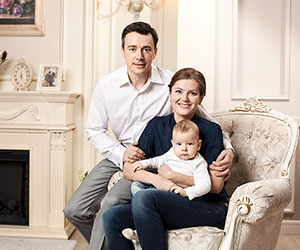What is a single-family office?
A family office can be a multi-family office or a single-family office.
- A multi-family office supports a (large) number of wealthy families.
- A single-family office supports just one wealthy family.
Single-family offices come in all sizes and forms, depending on the actual wealth and composition of a family. They can offer just investment services to a relatively small family (in that case they are often referred to as a private investment office or single-family investment firm) or provide a much broader range of services, with a sizeable team, to a large, diversified multi-generational family.
Read further or contact us for more information about single-family offices.
Single-family office definition
Single-family offices have been around for a very long time, in all sizes and forms, but since the beginning of this century, they have come more into focus. As families differ from each other, so do their single-family offices – each with a different family specific service package. Therefore, it is hard to give a general definition of what a single-family office is exactly and as the saying goes among some family office specialists: When you have seen one family office, you have only seen one family office.

A single-family office is a privately controlled (group of) staff employed within (or outside) a dedicated structure that supports a multi-generational wealthy family with the organisation, management and maintenance of (all or aspects of) their assets, needs and wishes.
The Caputo & Partners definition is purposely a broad one, as the establishment of single-family offices and how they operate can differ strongly. Also, most families have differing ideas and expectations about which services a family office should provide and what a family office actually is.
Although variances in single-family offices are a reality (ranging from a small operation with few staff and few services, to an organisation with dozens of employees), we believe that very clear patterns and systematic similarities can be seen in almost all well-functioning single-family offices.
In contradiction, a number of recurring mistakes are apparent in the more dysfunctional family offices – of which there is a considerable number. Families considering the establishment of a family office are therefore advised to follow a systematic process from the start, to achieve a professional and sustainable outcome.
What does a single-family office do?

The activities of a single-family office can consist of managing investments traded on stock exchanges, executing investments in private equity or acquiring commercial real estate, for example. Each family office develops its own focus in this respect. The family office is not only focussed on the day-to-day management of the family wealth, but is also specifically focussed on preserving and growing that wealth over generations, and safeguarding the family values.
A single-family office is often involved in legal and tax advice, to a certain extent, and the implementation of estate and succession planning for a smooth transfer and preservation of assets for the next generation. The implementation, management and administration of wealth planning structures such as trusts, foundations, life insurance solutions (ULI) and corporate entities can also be part of the family office activity.
The larger a family’s wealth, the more often its family office is also involved with lifestyle management. The family office can be responsible for assets such as foreign homes, art, yachts and aircraft. It can organise travel and act as a private secretary for family members. It can also be involved in philanthropic activities and the education of the next generation.
To simply sum it up, a single-family office:
- Increases control and oversight.
- Can be anything a family wishes it to be.
- Provides a small number of specific services or a very wide range.
❝ A single-family office can be anything
a family wishes
it to be ❞
In practice, this flexibility is where it often goes wrong. As there is not a set framework of services to be provided, families often forget to put enough thought in what the family office will actually provide to the family once established. This can trigger problems and conflict at a later stage. It is therefore highly advisable to plan right from the start.
Additional information about the role of a single-family office, what it can do, why it should and how it could support your family can be found under the topic; Why establish a single-family office?
The private investment office

The private investment office is a formalised structure through which an individual invests his/her large wealth. As one can detract from the name, such an office is fully focussed on investing and closely related activities (e.g. investment due diligence, investment related tax and legal matters). The focus is highly entrepreneurial and the founder is often actively involved. Other services are normally not provided and this is what sets it apart from a typical family office.
The other element is family. The private investment office is, in most cases, an office dedicated to the investments of one person or, at most, one generation. It is not involved with or engaging other family members and/or further generations. As such, it is hardly focussed on preserving the family wealth and legacy for the next generation(s), as is so typical for family offices.
It is not uncommon that a private investment office evolves into a more complete single-family office at a later stage.
Single-family office categories
Diving into the subject in more detail, one can distinguish two other types of single-family office, besides the ‘traditional’ single-family office (click for more detail):
The embedded family office

The reason that embedded family offices exist is that historically most wealth is generated through a family business. Once a business becomes successful and starts to generate excess cash, its owners not only have to manage the business, but gradually also its earnings.
This situation occurs whether or not those earnings are directly distributed or retained for longer within the business. In most cases, running the family business takes up so much time that the owners simply lack the capacity to manage their private financial (and family) affairs.
Risks involved with the embedded family office
Although a considerable number of single-family offices start as an embedded family office in one form or another, there are considerable risks connected to the embedded family office. We name a few:
- As the staff of the embedded family office was initially hired to do a specific – other – job within the family business, it is not at all certain that they are actually capable of executing the tasks of a single-family office. The chief financial officer (CFO) of a family business is, for example, not necessarily capable of managing the freely investable assets of the family (as would a chief investment officer [CIO]).
- The fact that the staff involved have dual responsibilities – their company tasks and the responsibility for private family (investment) matters – can cause considerable issues (not setting the right priorities, burnout, conflict of interest, lack of accountability).
- Privacy and confidentiality can also become a problem. Especially when more generations are served by the embedded family office.
- From a commercial and tax perspective, the costs for all family-office related activity should not be borne by the company. In practice this is often the case nevertheless and therefore a risk for the family.
When the family business is being sold or prepared for an IPO, the family must separate the family office activities from business activities. It is thus highly advisable to do this long before reaching that point, as it can otherwise potentially end in chaos for the family.
The virtual family office
The virtual single-family office is a group of independent professionals (and/or family members) that cooperate together, acting as if they are the single-family office of a family.
These professionals advise the family in a coordinated holistic way (always taking into account the advice and input of the other professionals), but remain employed within their own firms – they are not directly employed by the family. You could conclude that the level of outsourcing in a virtual family office is at its highest. In case family members are involved they operate from their own location.
For some families the virtual single-family office is the first step in the transformation from an embedded family office to a traditional single-family office. For others it is (because of the relatively low costs) the only possibility to enjoy the benefits of a single-family office.
The pitfalls of a virtual single-family office
A family that wants to operate a virtual single-family office needs to appoint at least one external person as coordinator, or coordinate this integrated way of advising themselves. This is also one of the immediate pitfalls of the virtual family office.
There is a clear risk that an institutional structured approach to the family’s wealth does not occur, due to the fact that there are no (or hardly any) direct employees and a lack of dedicated structure. In such a situation the virtual family office acts primarily reactive and response times will often be slower than in a traditional single-family office.
Benefits
The main benefit of a virtual single-family office is clearly the level of costs involved. This benefit is primarily due to a lack of direct employees and own infrastructure, such as an office. Specialists such as a CIO or tax advisor are only paid when used and can be replaced overnight.
Specific expertise can also simply be added to the team wherever and whenever necessary. In theory it is possible to select the best experts for each specific job. However, this is not always the case in practice.


